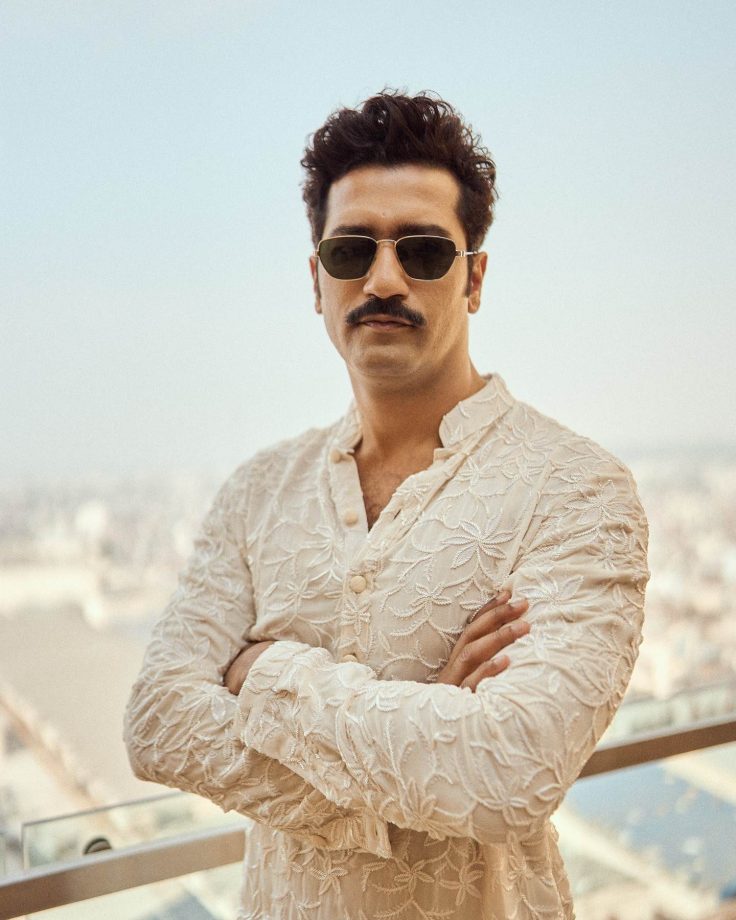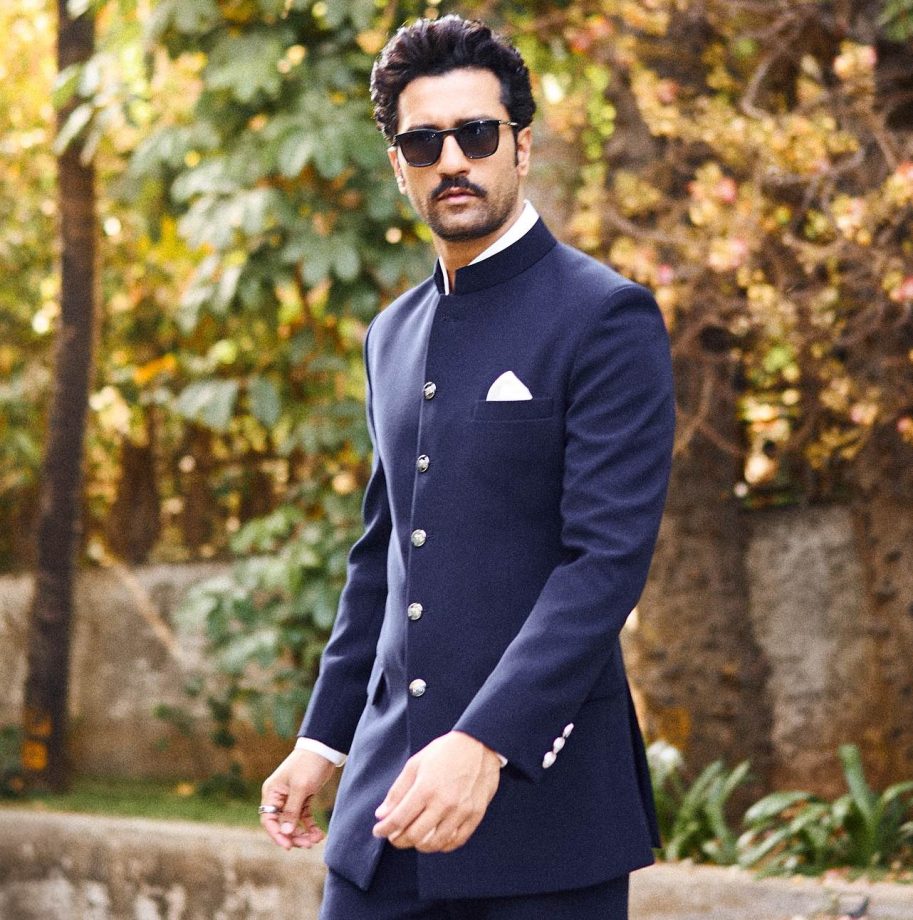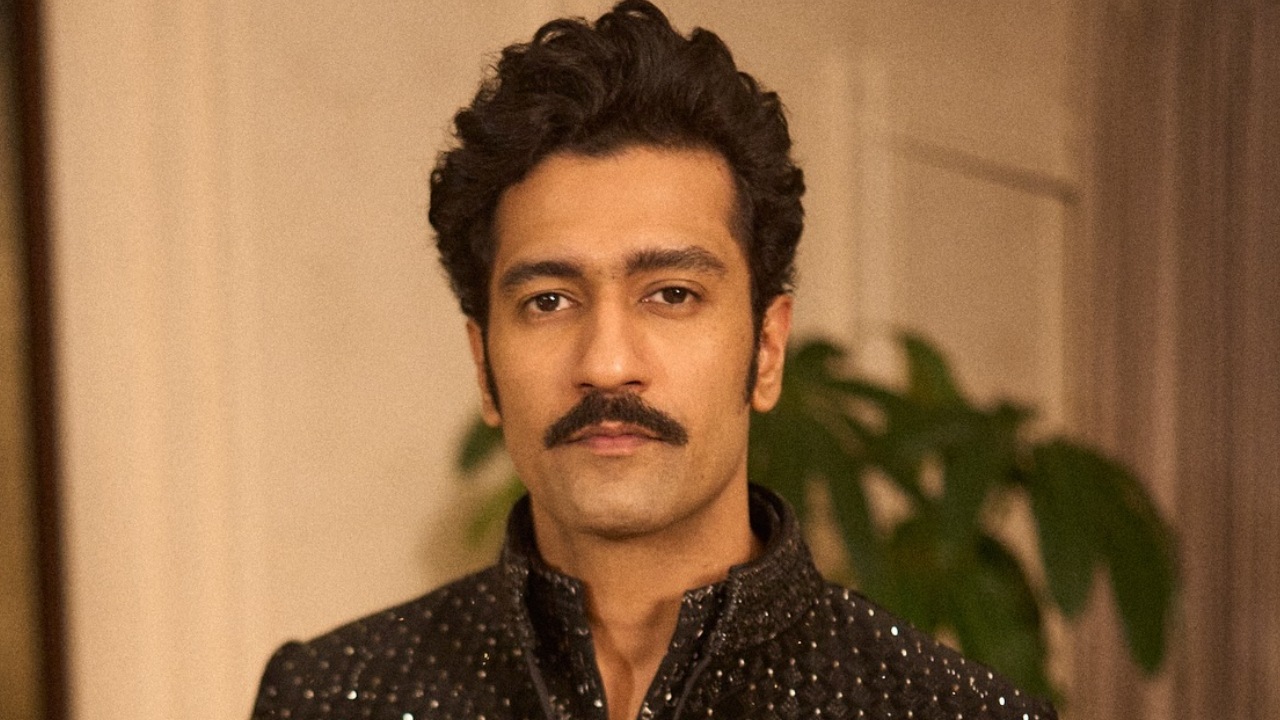“How’s the josh?” A line that reverberated through the hearts of millions, igniting a wave of collective pride and energy. When Vicky Kaushal delivered it in Uri: The Surgical Strike (2019), it became an emblem of determination, a pulse that seemed to sync with the entire nation’s rhythm.
As what we saw is, Vicky Kaushal becoming the embodiment of courage, of resilience, of something deeply visceral. That catchphrase alone could have been the turning point of a career. But it wasn’t. It was just the beginning.
The true magic of Vicky Kaushal lies not in any one performance, but in his ability to mould himself into characters that feel less like acting and more like an inevitable transformation. He doesn’t just play roles. He becomes them, erasing all traces of himself, so you never see Vicky Kaushal. You only see the story unfolding through his eyes, his body, his soul.

Take Masaan (2015), for example. It was here that we first saw him shed any trace of the typical Bollywood hero, embracing a character who is neither loud nor flamboyant. As Deepak, a young man caught in the cycle of grief, love, and societal constraints, Vicky didn’t shout for attention. He didn’t demand our sympathy. He simply was. His performance was understated, so real, so raw, that it whispered its way into our hearts. There was no dramatization. Just the quiet intensity of a man facing life’s most brutal truths.
Fast forward to Raazi (2018), where Vicky once again took on a role that demanded depth, but this time, it was layered with complexity and conflict. As Iqbal, a Pakistani army officer, torn between duty and personal conviction, he played a man caught in a moral struggle. It wasn’t his strength or his anger that defined the role. It was his restraint. Vicky captured a profound internal battle with such subtlety that you didn’t need to hear his thoughts to understand them. Every glance, every movement spoke volumes.

Then came Zara Hatke Zara Bachke, where Vicky brought to life a character who was more of a regular man than a hero, someone you could imagine sitting next to you at a café. He embodied the charm of the everyman with a depth that went beyond his character’s quirks and humour. His ability to shift between being the soldier, the lover, and the everyman—each so different, yet all so authentic—speaks to his versatility. He has a rare gift. He makes you believe that he is whoever he’s playing, in whatever world he inhabits.
Now, Chhaava (2025)—a historical epic, a leap from the urban characters of his past roles, but one that, like every other, he inhabits fully. As Chhatrapati Sambhaji Maharaj, Vicky takes on the weight of history itself. Yet, true to form, he doesn’t wear the role as a costume. He wears it as a second skin, bringing an ancient ruler to life in a way that feels incredibly personal and immediately relevant. You don’t just see a warrior of the past. You feel the pulse of that warrior’s struggle.
Vicky Kaushal doesn’t follow the typical trajectory of a Bollywood star. His career isn’t defined by grandiose showings or loud proclamations of greatness. Instead, it’s built on a foundation of steady, thoughtful performances that leave a lasting impression. He doesn’t need to dominate every frame because, in the moments he does speak, you’re so captivated that nothing else matters. Every role he takes on is like a conversation. A dialogue with the audience that feels deeply intimate, one that lingers long after the film ends.
Off-screen, Vicky remains a contradiction to the very notion of stardom. He’s not interested in playing a role outside of his films. The “Punjabi munda” vibe he projects is as genuine as it gets. And that’s probably what makes him so compelling. The truth in his authenticity is as magnetic as any of his performances.
As Vicky Kaushal looks back on a decade in the industry, it’s not about the flash or the fame. It’s about the work, the craft, the raw honesty in his performances that connect with people on a level that few others can achieve. And if this past decade is anything to go by, Vicky Kaushal’s future promises more brilliance than we can even imagine.

